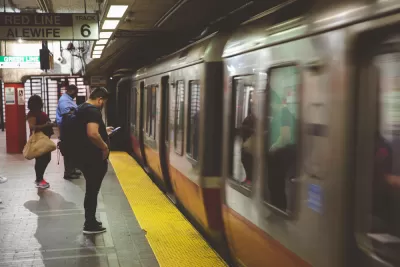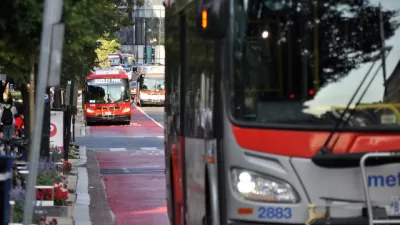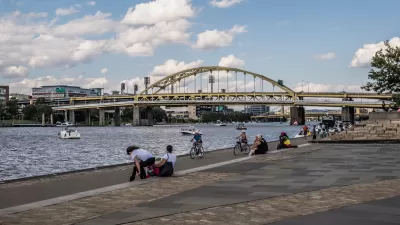The Transit Equity Dashboard highlights stark disparities in access to jobs, healthcare, and other essential services between Boston neighborhoods.

An analysis of data from TransitCenter’s Transit Equity Dashboard reveals that transit access in Boston has diminished in the last year, with the cuts being felt most acutely by low-income riders and communities of color.
“Of Boston’s residents, Black people, Latinx people, and people with limited means are consistently more likely to commute by public transit and less likely to drive. But these groups can access far fewer destinations than wealthier, White Bostonians can,” the report indicates.
While the agency “excelled at reorienting its limited service to routes where people were still riding” during 2021, access to transit took a downturn the following year. “From September 2021 to August 2022 (before the Orange Line shutdown), access to jobs decreased by 10.5% across the Boston MSA.” Today, “The region’s drivers can get to over 1.5 million jobs in 45 minutes – 15 times more jobs than one can get to by public transit.”
To undo “decades of inequity” that have led to limited access to opportunity, the report calls for “essential and ambitious reforms and investment” in transit that includes better wages and benefits for operators, commuter rail improvements, an expanded network of bus-only lanes, and investments in maintenance and operations.
FULL STORY: What Does Our Equity Dashboard Reveal about Transit Access in Boston?

Planetizen Federal Action Tracker
A weekly monitor of how Trump’s orders and actions are impacting planners and planning in America.

Map: Where Senate Republicans Want to Sell Your Public Lands
For public land advocates, the Senate Republicans’ proposal to sell millions of acres of public land in the West is “the biggest fight of their careers.”

Restaurant Patios Were a Pandemic Win — Why Were They so Hard to Keep?
Social distancing requirements and changes in travel patterns prompted cities to pilot new uses for street and sidewalk space. Then it got complicated.

Albuquerque Route 66 Motels Become Affordable Housing
A $4 million city fund is incentivizing developers to breathe new life into derelict midcentury motels.

DC Area County Eliminates Bus Fares
Montgomery County joins a growing trend of making transit free.

Platform Pilsner: Vancouver Transit Agency Releases... a Beer?
TransLink will receive a portion of every sale of the four-pack.
Urban Design for Planners 1: Software Tools
This six-course series explores essential urban design concepts using open source software and equips planners with the tools they need to participate fully in the urban design process.
Planning for Universal Design
Learn the tools for implementing Universal Design in planning regulations.
Heyer Gruel & Associates PA
JM Goldson LLC
Custer County Colorado
City of Camden Redevelopment Agency
City of Astoria
Transportation Research & Education Center (TREC) at Portland State University
Camden Redevelopment Agency
City of Claremont
Municipality of Princeton (NJ)




























